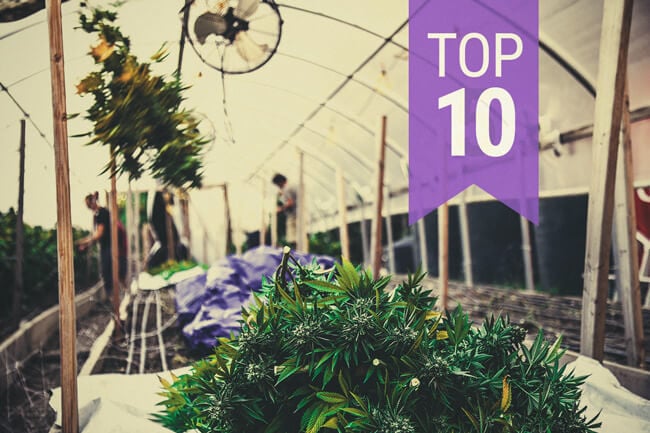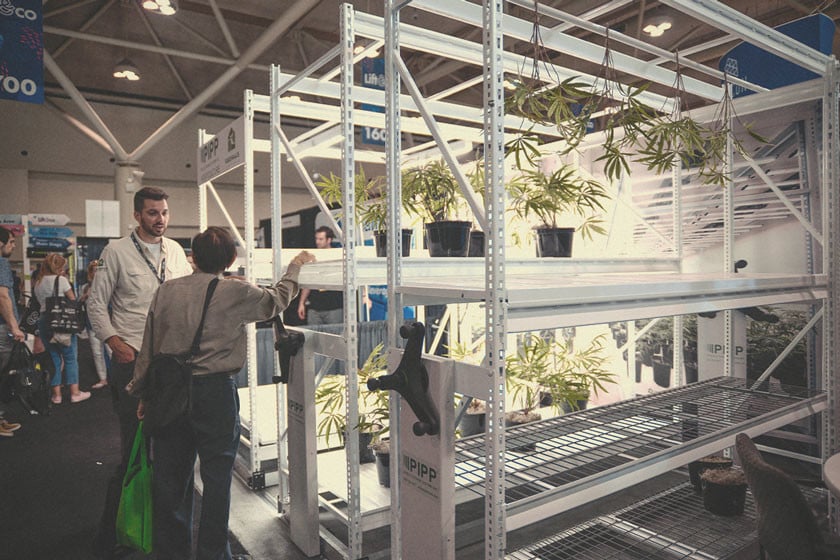.

RQS Interviews: Bradley Poulos on the Present and Future of Cannabis Business
Hello, my name is Bradley Poulos. I'm a battle-hardened entrepreneur, educator, and advisor. I have experience running and helping companies with issues related to growth. I'm a professor in the world-renowned Entrepreneurship programme at Ryerson University, where I teach a "Cannabis Essentials" course series. I also regularly write on the subject of SMEs and the cannabis industry in Canada.
If you’re curious about the cannabis industry, few people can offer deeper insights than entrepreneur and educator Bradley Poulos. Check out our interview with this battle-hardened professor of entrepreneurship to find out how the cannabis industry is set to develop, the current legal obstacles, and if cannabis businesses will benefit society.
1. Given its growing mainstream appeal, is it possible that the cannabis industry will develop just like any other major industry?
I think it's going to be unique. The first principles of business always apply. So in the final analysis, cannabis will be like any other industry with its own course. I think there are some interesting things about the cannabis industry that really don't apply elsewhere. Like, for example, where else do we have products that are used recreationally to alter mood, but also used medically? We don't use alcohol medically, for example. So I think that's one of the many things that makes cannabis a unique and really interesting industry to study and be part of.
2. As revenue increases, cannabis is becoming an exponentially attractive sector. But what can we do about its legal status? What are the roadblocks?
The big roadblock is the fact that it's not legal in most jurisdictions around the world, especially for recreational purposes. More and more, of course, are adopting medical regimes of some sort or another. But very few, as your listeners will know, have actually made it legal for anybody to use cannabis, essentially at any time, provided that you're the age of majority (18, 19, or 21).
That's the biggest barrier. And that's what needs to be brought down over time. It was the really ill-advised War on Drugs perpetuated by Americans in the early 70s that started all of this, and they essentially bullied the entire world into making cannabis illegal. It never should have happened.
3. How is the cannabis industry related to wellness, medicine, and recreation, as well as the hemp industry (textiles, paper, construction, and agricultural industries)?
I'm not sure that it serves either the hemp or the cannabis industry to lump those two together. Although, technically, it is the same plant—it's all Cannabis sativa, just different strains. That said, all dogs are dogs, but they sure look different, don’t they? It's the same thing with cannabis; you have the hemp variety, which is not psychoactive or has very low amounts of any psychoactive compounds. And then you have rec/medical cannabis that has THC levels above the legal threshold, which is typically 0.2 or 0.3%.
As I started to say, I don't really think that either industry, hemp or cannabis, is served well by lumping them together. They really are two very different products. If you think about hemp, it doesn't have the psychoactive properties that Cannabis sativa generally does. There's no real reason for hemp to be regulated anywhere. It is, but I don't believe it ought to be. We don't regulate weeds—I don't know why we need to regulate hemp fibre. But we do, and that's, again, because we got caught up in the War on Drugs, and it just got lumped in with everything else.
In terms of the cannabis industry, I think the hemp versus cannabis distinction can quickly become confusing for the general public. If you're trying to call it plant medicine, plus a mood-altering drug for recreation, but you can also make a shirt out of it… I just think it might be a little too much for consumers to understand, especially given all the misinformation that's out there with respect to cannabis.
In terms of the hemp situation in Canada, it’s still regulated—fairly heavily regulated—by Health Canada. You need a licence to grow it, sell it, and all that sort of stuff. In the United States, they actually opened it up a couple years ago with the Farm Bill, and that's helped a lot. Hemp-derived CBD is now essentially an unregulated product; it's a wide-open industry. And it's booming.
"Like, for example, where else do we have products that are used recreationally to alter mood, but also used medically? We don't use alcohol medically, for example. So I think that's one of the many things that makes cannabis a unique and really interesting industry to study and be part of."
4. What do you think about the overlap between the cannabis business and organised crime? Do you think this fraught relationship is paving the way for legalization?
No, I think it's the exact opposite. I don't think that organised crime is actually that interested in legalization. Here in Canada, we try very hard to keep organised crime out of the legal system, and so they're only left with the illegal system to operate in. Legalization does not really help organised crime at all. Other places around the world, they may have been able to infiltrate a little more than here. But in Canada, there's almost no organised crime activity in the legal cannabis space, either in retail or in cultivation.
We have really strict regulations as to who can be an officer, a key person, an owner, or a board member of a cannabis company—whether that be a retailer, a processor, or a cultivator. That's the main mechanism they've used to prevent organised crime in the legal space, as many people that are involved in these efforts have criminal records. The industry also performs deep security checks. It's an onerous process to get a licence here in Canada.
5. Is canna-business good for society? If so, how?
Let's take recreational first, and then we'll go back to medical.
I have a suspicion that a lot of people would be taking some form of pharmaceutical medication for anxiety or depression if they didn’t have access to cannabis. So I think we push people away from pharmaceuticals toward more natural remedies. There’s a famous singer here in North America, Melissa Etheridge, and she's heavily involved in the cannabis industry. I saw her speak a little while ago, and she said a great thing that I’ve stolen and now use all the time: “All cannabis is medical”.
Let's think about that. Why does somebody come home from work and then take a couple of pulls off a joint or whatever? Well, it's the same reason that their neighbour has a shot of scotch or a beer. I'm a firm believer in freedom, and I don't think the government has any right or any business regulating mine or anyone else's consciousness. So I'm a firm believer in being able to use cannabis recreationally, if that's something you're into doing.

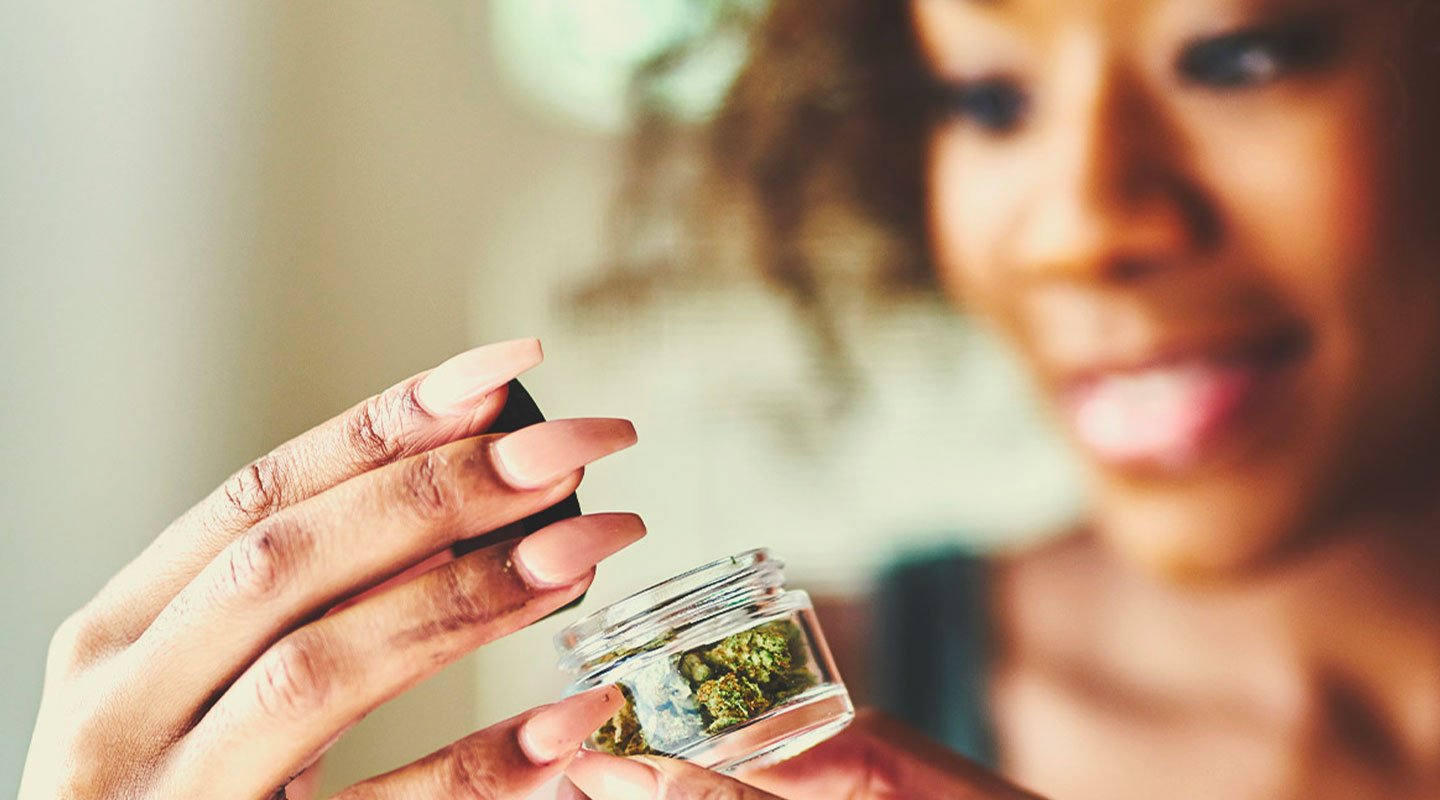
Beyond that, if we look at the medical uses for this plant, we actually have no idea of what the plant can really do. There are 140 or 150 cannabinoids in cannabis, these terpenophenolic compounds that react with certain receptors inside our body, CB1 and CB2, and then another couple of hundred terpenes. And we sort of have an idea of what some of them do, especially the big ones like CBN, CBG, CBD, THC... With those, we're starting to acquire some pretty good evidence about how they can help medically. But the lesser-known cannabinoids, those that exist in the plant in much smaller amounts, we really haven’t been able to study, because we can’t acquire a high-enough concentration of them.
And what's going to happen over the next several years, with different biosynthesis techniques using things like yeast, bacteria, and fungi, is we're going to be able to take these compounds that exist in the plant in really small amounts, and multiply them. And so then we'll have enough that we can actually study them in some meaningful way. And who knows what we're going to find out. The evidence so far is that both THC and CBD can help with things like pain, inflammation, and sometimes anxiety, depending on the amount that you take. Although, like so many other drugs, if you take too much, you can actually increase anxiety. There's also a really interesting variant of THC that suppresses appetite, THCV. THC on its own will increase appetite, but THCV actually suppresses appetite. This was only discovered a couple of years ago, so we're just scratching the surface.
6. Can we expect brands that are known worldwide to start investing in the cannabis industry?
Yes. Both tobacco and alcohol are now investing in these industries. I think it makes sense for tobacco, from a company’s point of view, as they're a dying industry and they've got to do something. It's just that the use cases are so different, so I don't see cannabis and cigarettes even existing in the same category of products. But obviously, this is one of the strategies they're following, to counteract the fact that they're essentially dying. So we've seen Imperial Tobacco and a couple of others make some investments in this space in North America.
On the alcohol side, Constellation Brands—one of the largest liquor brand holders on the planet—has bought a big piece of Canopy Growth, and, in fact, now runs it essentially. Canopy Growth is the largest Canadian operator of cannabis businesses. We've also seen Molson Coors, which is a very big beer brewer, not so much globally, but certainly in North America, make a strategic investment in one of the larger companies here in Canada called HEXO. So here, it's already happening.
7. As the cannabis industry evolves in countries like Canada and the United States, many new product ranges are emerging, such as infused gummies, snacks, water, creams, candles, and so on. Some are even made using terpenes not extracted from cannabis. What do you think about this development?
I think it's great because it offers all kinds of opportunities for companies to either create unique formulations or create brands around these formulations. Like so many other industries, I'm talking to you on an Apple computer. Apple doesn't make this computer; some other company makes it for them. And the food industry is very much that way. Co-packers and wholesalers that don't operate brands themselves do a lot of manufacturing for branded food products. It's just you and I don't realise that a global brand isn't actually growing its raw material, and they may not even be making the product.
So that's happening with cannabis now. We're seeing companies develop that are pure brand companies. There's a handful of them here in Canada—and I'm thinking of one in particular because I really liked their social purpose stuff, and they're totally virtual. They don't cultivate; they don't even sell the product because they don't have a sales licence. What happens is they use one cultivator to produce the product, and then they might use a different cultivator or a processing company to package it. All of these companies of course need licences from the government. And then they'll use a third company that has a sales licence to get products into the retail channel. So you can operate a cannabis brand without actually even having a licence.
Now, onto the terpenes part of this question. Terpenes in Canada are not actually regulated, other than being caught up in overarching food regulations; or, even if it's a terpene included in a topical medicine, it would autumn under natural health product regulations. But they don't actually autumn under the Cannabis Act, the terpenes themselves.
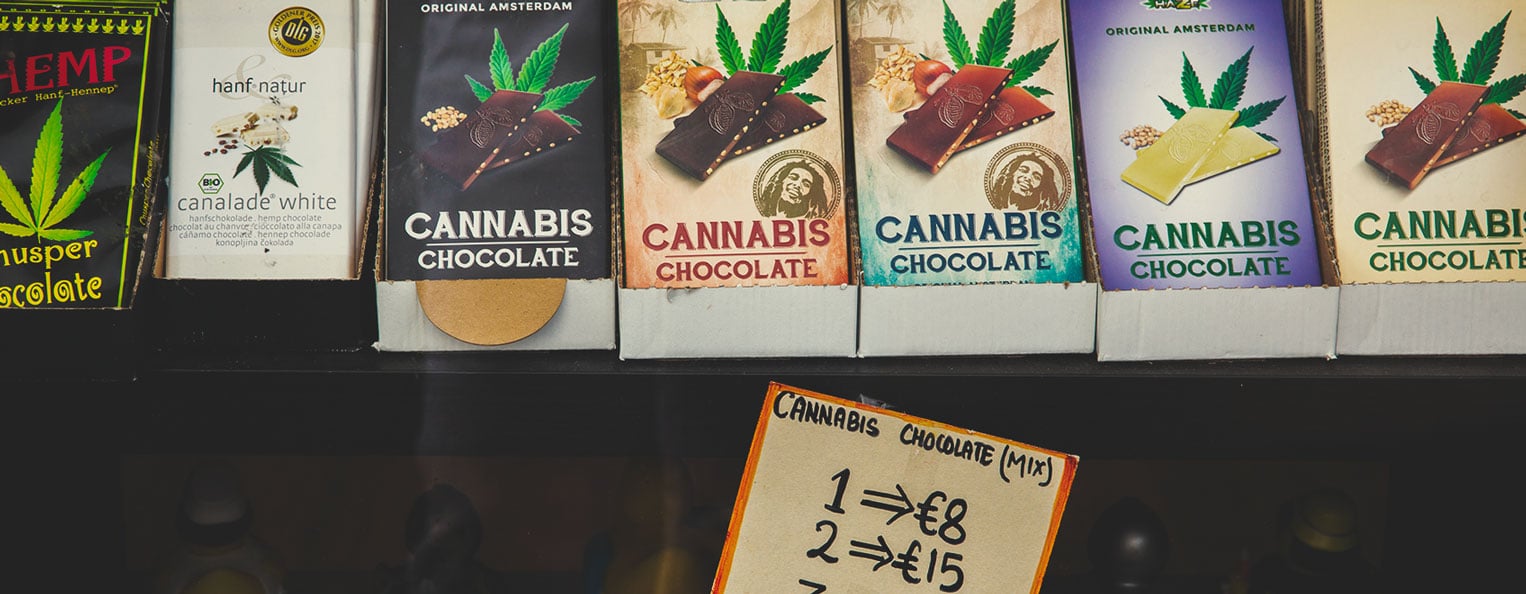
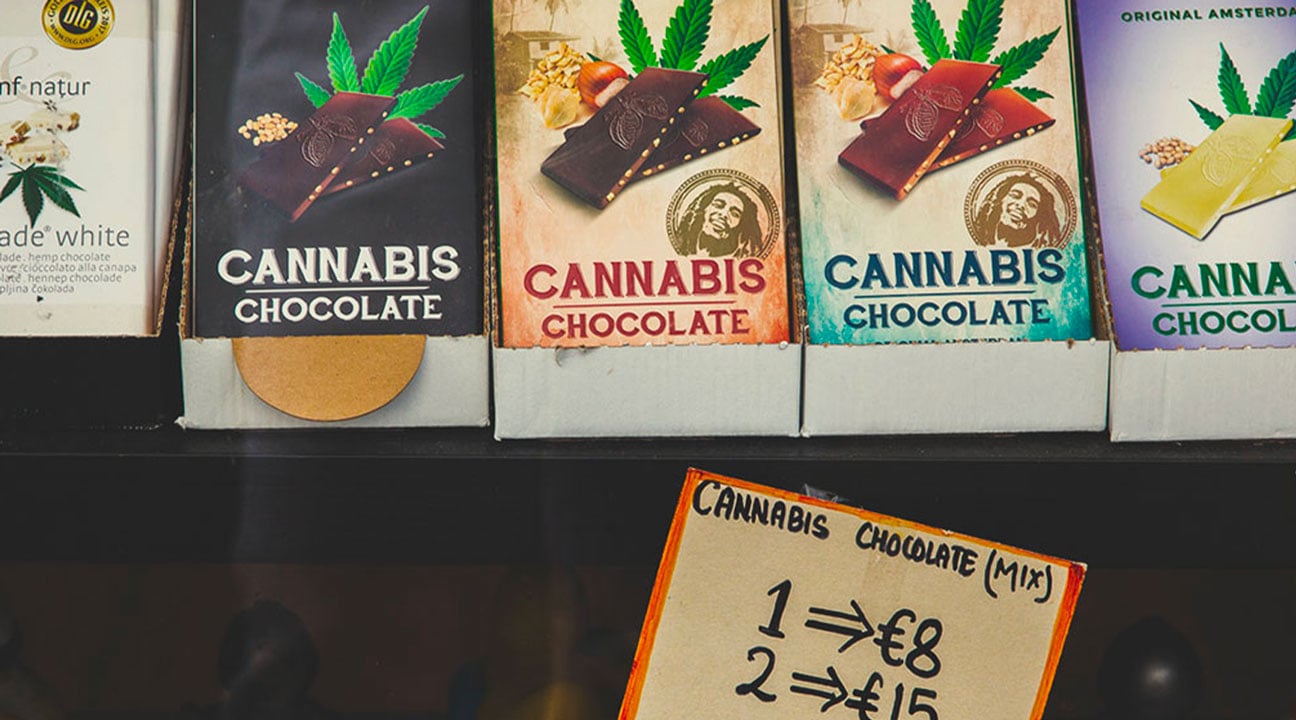
That sort of gives us in Canada a blank piece of paper to work with, as you don't start with any restrictions or handcuffs on you. It's the cannabinoids, specifically THC and CBD, that are heavily regulated. My hope is that, over time, we'll move to a world where it's not the cannabis plant that we regulate, but the compounds that come from it. My belief is the only one we need to seriously regulate is THC. It's the most potentially dangerous one. I mean, if somebody were to ingest the wrong amount of THC and get behind the wheel of a car, that would not be a good thing. That doesn't happen with CBG, CBN, or CBD. I just don't see the need to so heavily regulate them. My hope is that ultimately we're going to separate the plant from its compounds. The regulation should really only apply to THC-oriented products, but that's just my hope and dream. There's no sign of that happening yet.
The other thing to think about, certainly here in Canada, is that it hasn't even been a full two years that we've had what we call the "cannabis 2.0" product. That's everything other than flower and oil. What the podcast listeners may or may not know is that when we legalized in Canada, for the first year, we only legalized flower and oil. There were no edibles, no drinks, no topicals. There weren't even concentrates. So we didn't have hashish, we didn't have shatter, butter—any of those things. It was a full year after legalization that those products were brought on the line.
So we haven't even had a full two years of those being in the marketplace. There's a lot that the public and even the government has to get comfortable with. As that happens over the next, say, five to ten years, I think we're going to see cannabinoids proliferating, especially CBD. Because it's so available through hemp, it's relatively cheap to get. Also, it actually binds to more places in the body than THC does. As you probably know, the primary receptor for CBD is CB2. And those receptors exist throughout the body, whereas CB1 is primarily in the nervous system.
8. What types of cannabis-related companies can we expect to launch in the coming years?
I think that question is going to be answered jurisdiction by jurisdiction. Here's an example. In the United States, federally, cannabis is illegal. But there are several states that have medical and/or recreational regimes. The rules in these states are all different.
For example, in some states, you're required to be fully vertically integrated, meaning if you're selling something in a shop, your company has to be the one who grew that product. So you have to invest in cultivation, and maybe some form of processing if you're gonna have anything other than flower, and then a retail presence. So you have this forced vertical integration, but then in other jurisdictions, vertical integration is not allowed. In fact, you are required to have separate cultivators and retailers.
Here in Canada, it's kind of an amalgam of that, because we allow processors and cultivators to own retail, but we cap how much retail they can own. And that's only North America. That doesn't even speak to Europe or Latin America, which are both opening up at a fairly rapid pace. We're seeing new countries come online all the time. So the answer to your question is really going to be driven by what the rules are in that jurisdiction.
In terms of Canadian business specifically, what's happening right now is very predictable. I'm a strategy professor, so I study how industries evolve over time. And like any new business that offers really big returns to investors, we saw this massive influx of capital—starting around 2015 or 2016. Around five years ago is when it really began, up until a couple of years ago when the world started to realise, “Oh boy, I think we might have too much money at play in this industry. There may be too many players”.
And I'll give you some numbers that might illustrate that. Our legalization date here was October 17, 2018. In the summer of 2017, 15 months before legalization, that's when I started to raise the alarm bells about how many cannabis facilities we were building in Canada. And I'll tell you the reason why. Here in Canada, we have around a million kilograms a year of demand for cannabis. The number at the time was 900,000kg. Let's say it's about two million now—that's probably pretty close. At the time, the two largest companies in the game, Aurora and Canopy Growth, had the capacity, either in place or on the books, to satisfy that full million kilograms. And there were 128 licencees. Today, there are 400. So if two licencees can satisfy the entire Canadian demand, what are the other 126 for?
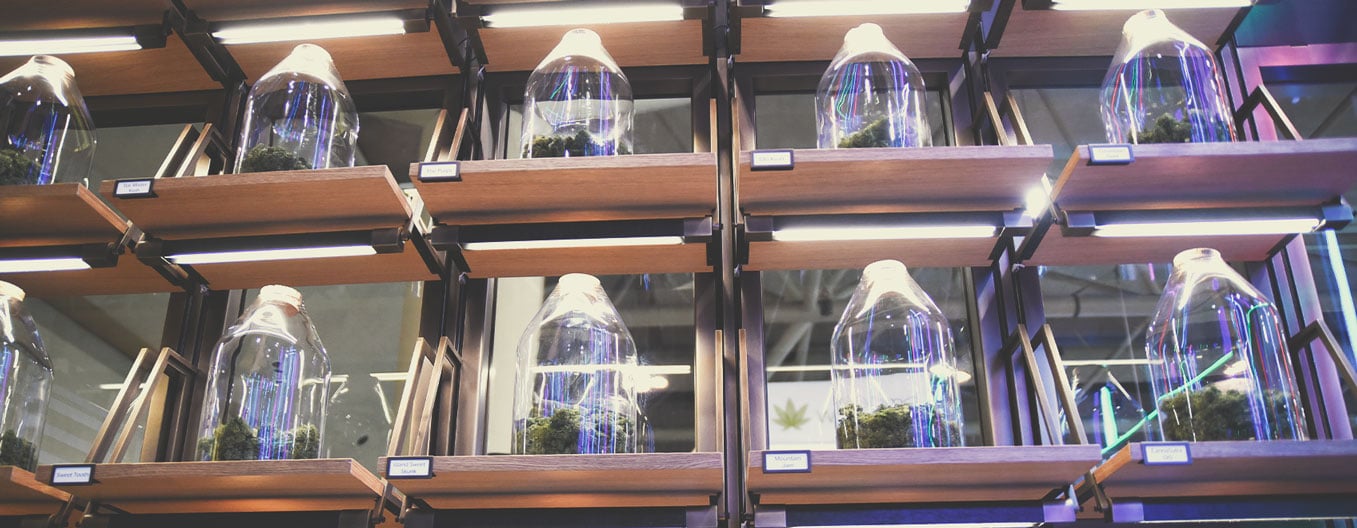
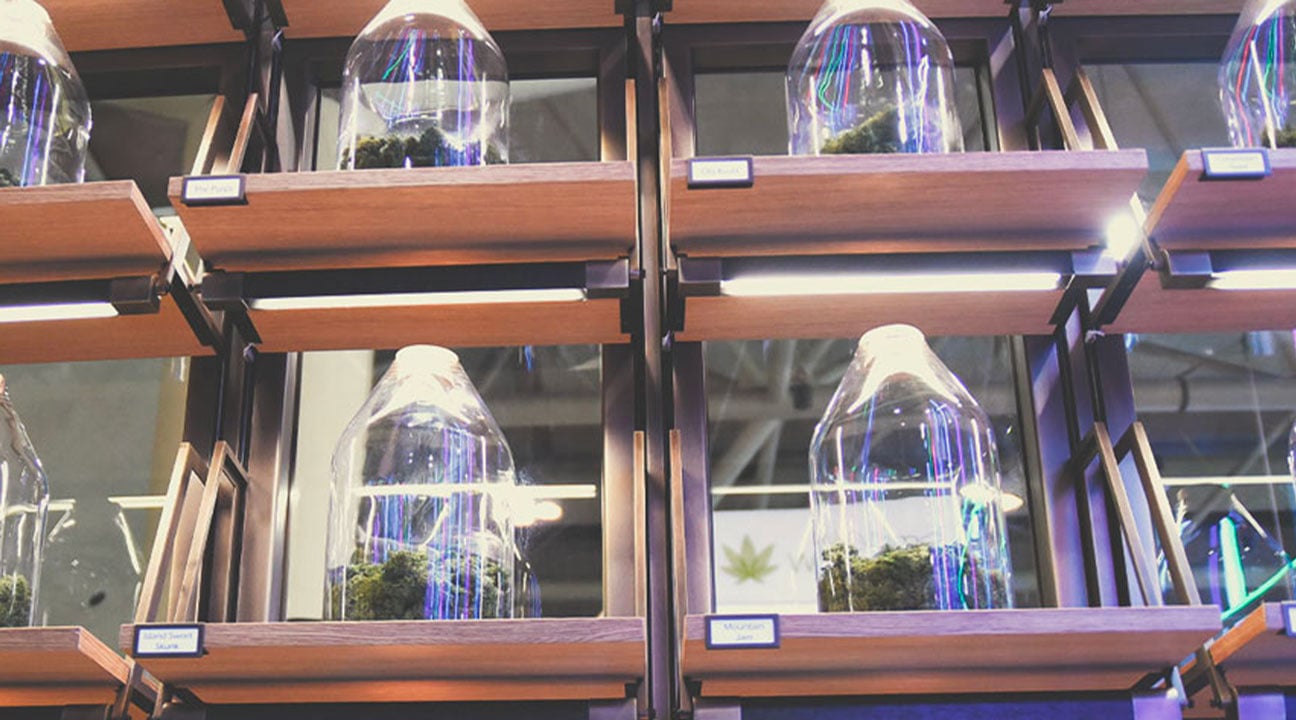
The other thing is, over the course of the next year, between that point in time and legalization, we saw these massive increases in inventory and all the public companies producing all kinds of cannabis—but nobody bought it. It's wasn't getting sold. So now what? Because we've had this massive influx of capital, we overbuilt the industry, we have all kinds of facilities that are sitting doing nothing, now we have companies that are just holding on by their fingernails, and some that aren't holding on. And so what's happening is those companies are getting bought, or their facilities are getting bought for nowhere near what the investors paid to build them, and over the course of the next year, maybe two, that shakeout is going to continue. In the end, we'll have a handful of producers in Canada, most of which will be big, alongside a few medium and small players—but there will not be 400 companies in the game. There's no way the market will allow it.
Especially in a regulated industry, you need a certain amount of business just to exist. There's not enough of a market in Canada for 400 and then some. The retail industry, especially in my province of Ontario, which is the most populous province in Canada, is repeating the same mistake. Because retail is actually run by the provinces, not the federal government, we're seeing like five shops in a row being built on major streets in Toronto. There's no way that all five are going to make it, and you just have to wonder how smart these people are with their money. Because anybody who's studied strategy or any industry knows that this is what happens in a new industry—we have a massive influx where the pendulum almost always swings too far to one side, we overbuild, and then the really well-capitalised ones scoop up the ones that aren't so well-capitalised. And then you have this shakeout where you end up with a handful of companies.
Here's a great analogy. I actually come out of the telecom industry in Canada. And back when I started my career a couple of decades ago, we had 300 companies offering long-distance telephone service in Canada. Now why were there so many? Because it had just been recently deregulated. So everybody jumps in, everybody wants a piece of the pie. Here's this great new business that used to be a monopoly owned by the telephone companies, and now anybody can do it. So what happened in the past, say, 30 years? That number went from 300 down to, like, four. That's what we have now.
9. Looking to the future, do you think legalization will transform the cannabis industry? If so, how?
Of course it would, and that was actually a lot of the dream that was sold to investors: “Hey, we're first—we're going to get all this business from Germany and the Netherlands and Australia and Spain”. Yes, there are Canadian companies that have shipped to all of these places, and others as well, but every one of them is developing their own indigenous industry; their own homegrown industry—forgive the pun.
People in Germany don't want to buy cannabis from Canada; they want to buy cannabis from Germany. And so now, some of those large players in Canada and America are investing in these European companies, which I think is a smart thing to do. But the export market is not going to save these companies, because it's not going to be that great in the final analysis.
There is something happening in the industry that I do find interesting, which sort of counteracts what I just said, but it's not in Canada. There are several companies in South America, Colombia specifically, that I think have a really smart strategy, which is to grow near the equator—which is the best place to grow cannabis. It likes the 12 on 12 off light cycle, and the equator also provides lots of heat. You don't have to grow cannabis indoors the way they do in the UK, Canada, or Germany. You can grow it outdoors, and then distil it or isolate it down into individual cannabinoid products, and ship those highly concentrated cannabinoids to places like Canada, the US, and Europe to be formulated into cannabis 2.0 products.
A drink or a chocolate bar doesn't care if the THC came from a flower or an isolate. I think that's going to disrupt these companies in Canada that think, “Oh, well, we're going to be growing all this cannabis and it's going to go in topical creams and toothpaste and all kinds of other consumer products”. I think they're going to get a rude awakening when the value chain really develops, as all industries do over time. You've got the raw material industry, then you've got processing, and you've got highly processed products, which flower and oil are not.
"Especially in a regulated industry, you need a certain amount of business just to exist. There's not enough of a market in Canada for 400 and then some."
10. What advice can you give to entrepreneurs looking to invest in the cannabis industry?
The opportunities that were there five years ago are not the same as the ones here today. Now you don't have a clear view of how the industry is going to go. So that takes time studying and understanding the forces at play. But then really, do your homework in terms of the local jurisdiction that you're thinking of going into, because every industry is not as it seems. But this one, I think, is even more complicated. There's a lot going on—it's a regulated industry, it's also got a stigma attached to it from years before that doesn't exist in other regulated industries.
Even alcohol doesn't have the same stigma cannabis does. And yet, it's interesting, because cannabis is not a lethal product, but alcohol is, so it's really crazy. There's half a bottle of vodka downstairs in my bar that if my grandson drank at all, he might die. And there's gummies in the freezer that if he found them, he would have a very, very rough afternoon—but he's not going to die. So I've never understood why cannabis is so tightly regulated, and alcohol, which is literally a lethal product, is less so. You may or may not be familiar with the rules that we have in Canada around cannabis packaging, but they're draconian; it's just ridiculous. You walk into a liquor shop and you see these beautiful, fancy bottles of tequila, and then for cannabis you have to use plain packaging. The THC warning symbol has to be as large as your logo, with warning labels all over the place.


























